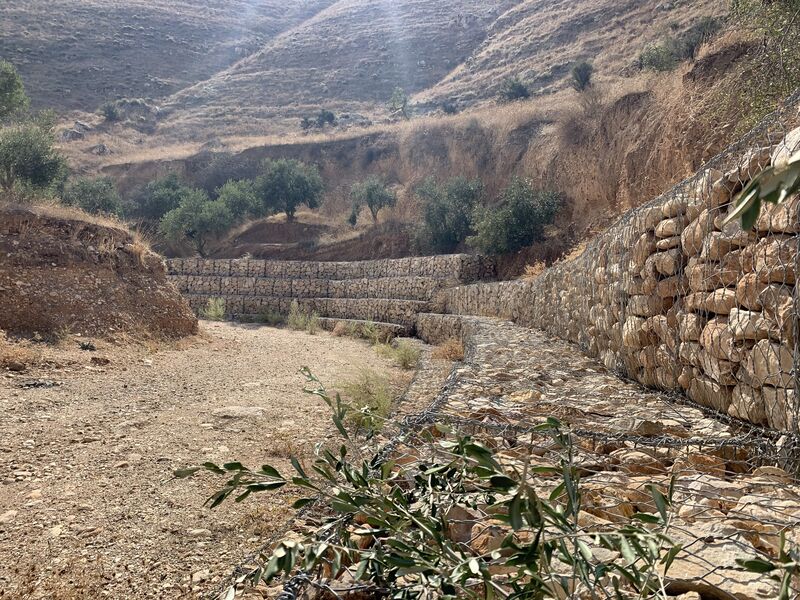The project aims to:
- To improve the living conditions for Jordanian and Syrian families in need through employment intensive measures.
- To reduce erosion in dam catchment area while supporting the basic needs of vulnerable Jordanians and Syrians
- Prevent flood events in Za’atari Camp while creating short term incoming generating activities for Syrian Refugees
IUCN anticipates technical work to follow three main streams:
- Rehabilitation: cleaning the main wadies in the catchment zone and removing big rocks and stones in the wadies to assure efficient movement to the selected sites. The rehabilitation activities will occur prior to the construction works.
- Construction and excavation works: excavating trenches, tunnels and contour bonding; building gabions, tunnel gabions, terraces and dikes.
- Forestation and planting: plant around 2,000 trees on the land around the dam, steep land, and close to the erosion activities along the catchment wadies. The forestation and planting will occur following the completion of the construction and excavation works.
- Funded By: The German International Cooperation Agency (GIZ)
- Executed By: IUCN ROWA
- In collaborations with: Agency for Technical Cooperation and Development (ACTED), Horizons for Green Development, and REACH.

